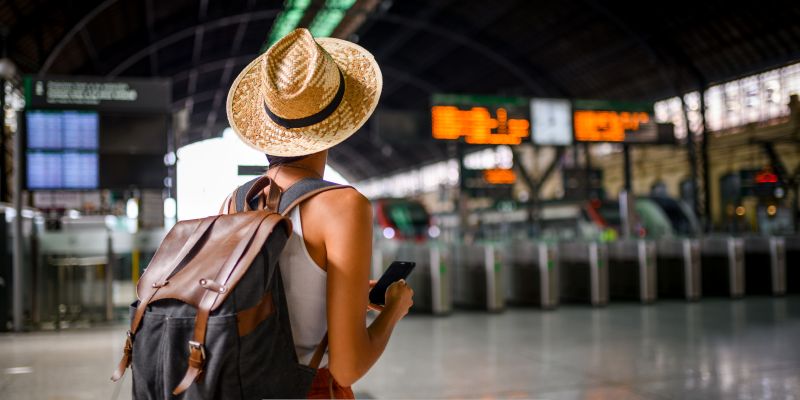Before embarking on any journey, thorough research about the destination is paramount. Understanding the local culture, customs, and traditions can significantly enhance the travel experience. Travelers should delve into the history of the place, as this knowledge often provides context for the sights and experiences they will encounter.
For instance, knowing the significance of a historical monument or a local festival can transform a simple visit into a profound experience. Additionally, familiarizing oneself with the local language, even if it’s just a few key phrases, can foster goodwill and open doors to more authentic interactions with locals. Moreover, it is essential to stay informed about current events and any travel advisories that may affect the trip.
This includes understanding the political climate, health advisories, and any natural disasters that may have recently occurred. Websites dedicated to travel safety and government advisories can provide valuable insights. By being well-informed, travelers can make educated decisions about their itinerary and avoid potential pitfalls.
Engaging with travel blogs or forums can also offer firsthand accounts and tips from those who have recently visited the destination, providing a more personal perspective that can be incredibly beneficial.
Key Takeaways
- Researching Your Destination
- Research the local customs and traditions before traveling to your destination
- Look into the current political and social climate of the area
- Find out about any health or safety concerns in the region
- Packing Essentials
- Pack a first aid kit with essential medications and supplies
- Bring copies of important documents such as your passport and travel insurance
- Pack versatile clothing and comfortable shoes for different activities
- Safety Precautions
- Keep your belongings secure and be aware of pickpockets in crowded areas
- Avoid walking alone at night in unfamiliar areas
- Stay informed about any travel advisories or warnings for your destination
- Staying Connected
- Share your itinerary and contact information with a trusted friend or family member
- Keep important phone numbers, such as local emergency services and your country’s embassy, saved in your phone
- Consider purchasing a local SIM card or an international phone plan for reliable communication
- Trusting Your Instincts
- Listen to your gut feelings and avoid situations that make you feel uncomfortable
- Be cautious of overly friendly strangers and trust your instincts when interacting with locals
- If something doesn’t feel right, remove yourself from the situation
- Blending In
- Dress modestly and respectfully to adhere to local customs and avoid drawing unwanted attention
- Learn a few basic phrases in the local language to show respect and make communication easier
- Observe and mimic the behavior of locals to blend in and show cultural awareness
- Avoiding Risky Situations
- Avoid displaying expensive belongings or flaunting wealth in public
- Be cautious when using ATMs and avoid carrying large amounts of cash
- Stay away from demonstrations, protests, or any potentially volatile situations
- Seeking Support
- Familiarize yourself with the location of your country’s embassy or consulate in case of emergencies
- Reach out to local authorities or trusted individuals if you find yourself in a risky or threatening situation
- Utilize travel apps or online resources for safety tips and support while abroad
Packing Essentials
Clothing and Accessories
For instance, if traveling to a tropical location, lightweight clothing, swimwear, and sun protection are essential. Conversely, a trip to a colder region necessitates warm layers, waterproof gear, and sturdy footwear. It is advisable for travelers to check the weather forecast leading up to their departure to ensure they are adequately prepared for any unexpected changes in conditions.
Important Documents and Essentials
In addition to clothing, packing essentials should include important documents such as passports, visas, and travel insurance information. Keeping these documents organized and easily accessible can save time and stress during travel. Furthermore, travelers should consider bringing a small first-aid kit stocked with basic medications and supplies for minor ailments.
Technology and Accessories
Lastly, technology has become an integral part of travel; therefore, chargers, adapters, and portable power banks should not be overlooked when packing.
Safety Precautions

Safety should always be a top priority when traveling. One of the most effective ways to ensure personal safety is to remain aware of one’s surroundings at all times. This includes being cautious in crowded areas where pickpockets may operate or avoiding poorly lit streets at night.
Travelers should also familiarize themselves with local emergency numbers and the locations of nearby hospitals or police stations. Having this information readily available can provide peace of mind and quick access to help if needed. Additionally, it is wise for travelers to share their itinerary with friends or family back home.
This not only keeps loved ones informed but also serves as an extra layer of security. Regular check-ins via text or social media can reassure those at home that everything is going smoothly. Furthermore, utilizing technology such as location-sharing apps can enhance safety by allowing trusted contacts to know where one is at all times.
By taking these precautions, travelers can enjoy their adventures with greater confidence and peace of mind.
Staying Connected
| Metrics | Data |
|---|---|
| Number of Phone Calls | 250 |
| Number of Text Messages | 500 |
| Number of Emails Sent | 150 |
| Number of Video Calls | 100 |
In today’s digital age, staying connected while traveling has become easier than ever. Many travelers rely on smartphones for navigation, communication, and sharing experiences in real-time. Before departing, it is advisable to research mobile data plans or international roaming options that suit one’s needs.
Some travelers opt for local SIM cards upon arrival, which can provide affordable data access without incurring hefty roaming charges. Social media platforms also play a significant role in keeping travelers connected with friends and family back home. Sharing updates through photos and posts not only allows loved ones to follow along on the journey but also serves as a digital diary for the traveler.
However, it is essential to balance connectivity with mindfulness; being overly engrossed in social media can detract from fully experiencing the destination. Setting aside specific times for checking in can help maintain this balance while still enjoying the adventure.
Trusting Your Instincts
One of the most valuable tools a traveler possesses is their intuition. Trusting one’s instincts can often be the difference between a positive experience and an uncomfortable situation. If something feels off—whether it’s an unfamiliar area or an interaction with a stranger—travelers should heed that feeling and take appropriate action.
This might mean leaving a situation or seeking assistance from locals or authorities. Moreover, being attuned to one’s surroundings can help identify potential risks before they escalate. For example, if a traveler notices that an area feels unsafe or that people seem unfriendly, it may be wise to change plans or seek out more populated areas.
By remaining vigilant and responsive to their instincts, travelers can navigate unfamiliar environments more safely and confidently.
Blending In

One effective way to enhance safety while traveling is by blending in with the local culture. This involves dressing appropriately for the destination and adhering to local customs and etiquette. For instance, wearing clothing that aligns with local norms can help avoid drawing unnecessary attention and foster goodwill among residents.
Researching cultural practices before arrival can provide insights into what is considered respectful behavior. Additionally, adopting local customs—such as greetings or dining etiquette—can create opportunities for meaningful interactions with locals. Engaging in conversations about local traditions or asking for recommendations can lead to unique experiences that might not be found in guidebooks.
By making an effort to blend in rather than stand out, travelers not only enhance their safety but also enrich their overall experience.
Avoiding Risky Situations
While travel is often filled with excitement and adventure, it is crucial for travelers to remain vigilant about avoiding risky situations. This includes steering clear of areas known for high crime rates or avoiding excessive alcohol consumption that could impair judgment. Being mindful of personal belongings in crowded places is also essential; using anti-theft bags or keeping valuables secured can help mitigate risks.
Furthermore, travelers should be cautious when accepting offers from strangers or engaging in activities that seem too good to be true. Scams targeting tourists are prevalent in many destinations; therefore, conducting thorough research before participating in tours or excursions is advisable. By exercising caution and being aware of potential pitfalls, travelers can enjoy their adventures while minimizing risks.
Seeking Support
In the event that challenges arise during travel, knowing where to seek support can make all the difference. Many cities have tourist information centers that provide assistance and resources for travelers facing difficulties. Additionally, connecting with fellow travelers through online forums or social media groups can offer valuable advice and support from those who have experienced similar situations.
If faced with serious issues such as theft or medical emergencies, contacting local authorities or embassies is crucial. These organizations are equipped to provide assistance and guidance in navigating challenging circumstances. By being proactive about seeking support when needed, travelers can ensure that they are not alone in facing difficulties during their journey.
In conclusion, preparing for travel involves much more than simply booking flights and accommodations; it requires careful planning and consideration of various factors that contribute to a safe and enjoyable experience. From researching destinations to packing essentials and staying connected, each aspect plays a vital role in ensuring a successful journey. By trusting their instincts, blending in with local cultures, avoiding risky situations, and knowing where to seek support when needed, travelers can navigate their adventures with confidence and ease.
Ultimately, these practices not only enhance personal safety but also enrich the overall travel experience, allowing individuals to create lasting memories while exploring the world around them.
For women solo travelers looking for travel safety tips, they may also be interested in reading about “Safe Harbor 401k Plans: Ensuring Financial Security in Retirement” here. Planning for financial security in retirement is just as important as ensuring personal safety while traveling, and this article provides valuable information on how to achieve that goal. By being prepared financially, women can enjoy their solo travels with peace of mind knowing that their future is secure.
FAQs
What are some general travel safety tips for women solo travelers?
– Always research your destination and be aware of any potential safety concerns.
– Keep your friends and family informed of your travel plans and itinerary.
– Trust your instincts and be cautious of your surroundings.
– Avoid walking alone at night and in unfamiliar or isolated areas.
– Keep important documents and valuables secure and hidden.
– Be mindful of local customs and dress codes to avoid drawing unwanted attention.
What should women solo travelers do in case of an emergency while traveling?
– Have emergency contact information readily available.
– Know the location of the nearest embassy or consulate.
– Keep a copy of important documents such as passport and travel insurance.
– Stay calm and seek help from local authorities or trusted individuals.
How can women solo travelers stay safe while using public transportation?
– Research the safest modes of transportation in your destination.
– Avoid traveling alone late at night.
– Sit near the driver or conductor on public transportation.
– Keep your belongings secure and within sight at all times.
What are some tips for women solo travelers to stay safe in their accommodations?
– Choose reputable and secure accommodations.
– Lock your doors and windows at all times.
– Avoid sharing too much personal information with strangers.
– Use the hotel safe for valuables and important documents.









